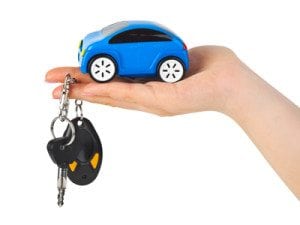If you live in an area with reliable public transportation, you are able to weigh whether the costs associated with car ownership is worth it. The American Society of Civil Engineers reports that 45 percent of American households lack access to public transportation, and if you're part of that, then having a car becomes far more of a necessity.
Budgeting For A Car
Don't just think about your monthly budget. Sit down and write it all out. In one column should be the amount of money your household brings in each month and in the other should be all the expenses you owe and pay each month. Include everything: rent, utilities, student loans, personal loans, credit card payments, childcare, and personal expenses. Factor in any money you need to put aside each month in a “rainy day” fund in the event you experience a job loss or other financial emergency. Once you subtract your bills from your income, you should have a pretty clear idea of how much car you can afford.
Pros and Cons of Used Cars
If you don't have wiggle room in your budget for a car payment, consider paying cash for an older car. Paying cash comes with its own pros and cons.
- Pro: no car payment
- Pro: free and clear title
- Pro: can borrow against it in an emergency
- Con: is likely to be an older model car, needing more repairs
- Con: may need to be replaced sooner than a newer car
- Con: still need to put money away each month for inevitable upkeep
Prior to visiting the dealership — before you fall in love with a car — look at your budget and decide how much of a monthly payment you can afford. An online calculator will allow you to plug that payment amount in, along with an interest rate, to figure the total cost. Walking into the dealership with a bottom line number in mind will offer you confidence as you negotiate.
Operating Costs of Vehicles
Kiplinger's compares personal finances to playing the game of Monopoly. Just as in the game, you need to hold enough cash to cover inevitable expenses. Your car is going to need to be filled with gas, have the oil changed, tires replaced, and repairs to the body and engine. The true cost of a car is how much it costs to own it.
An extended warranty might seem like a large up-front expense, but it can save you sleepless nights of worrying about how you're going to pay for costly repairs. One great move is to ask about the cost of an extended warranty before you even begin looking at cars. Build that amount into total you plan to spend on the car.




